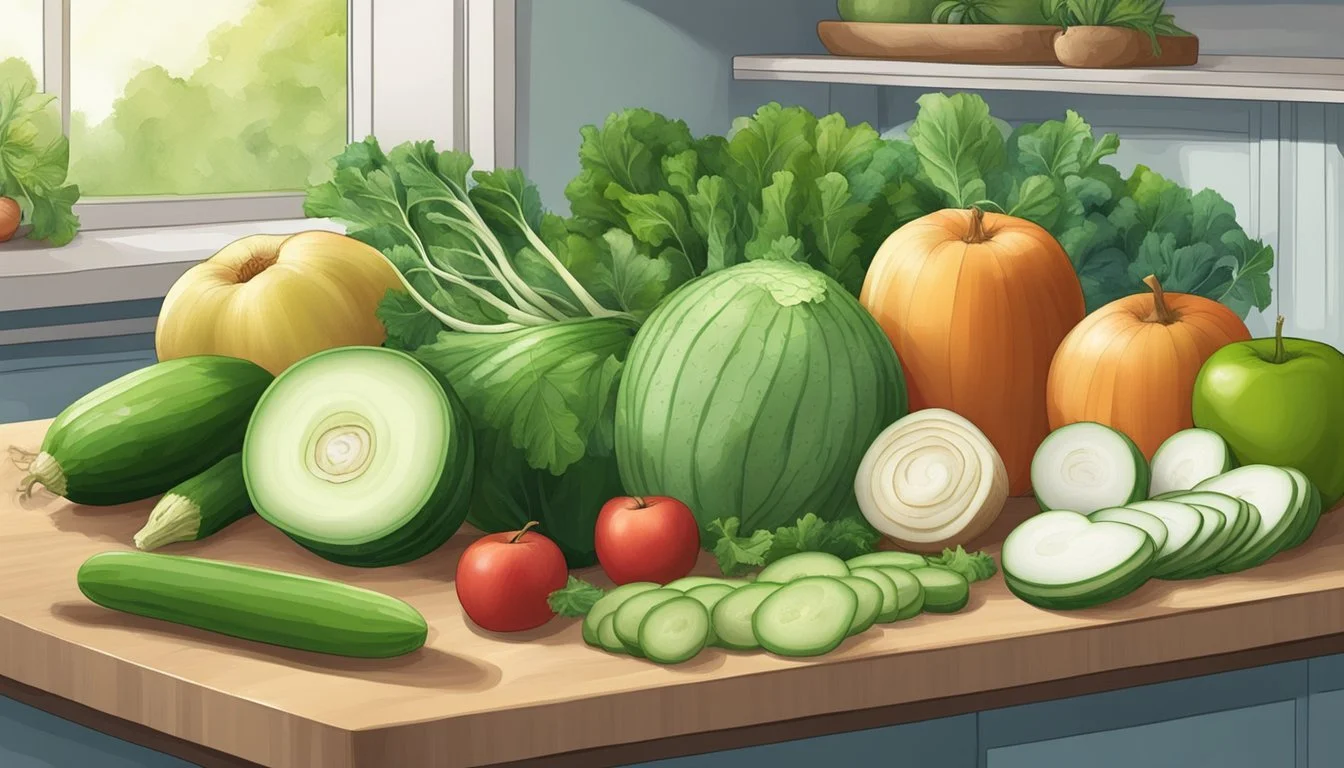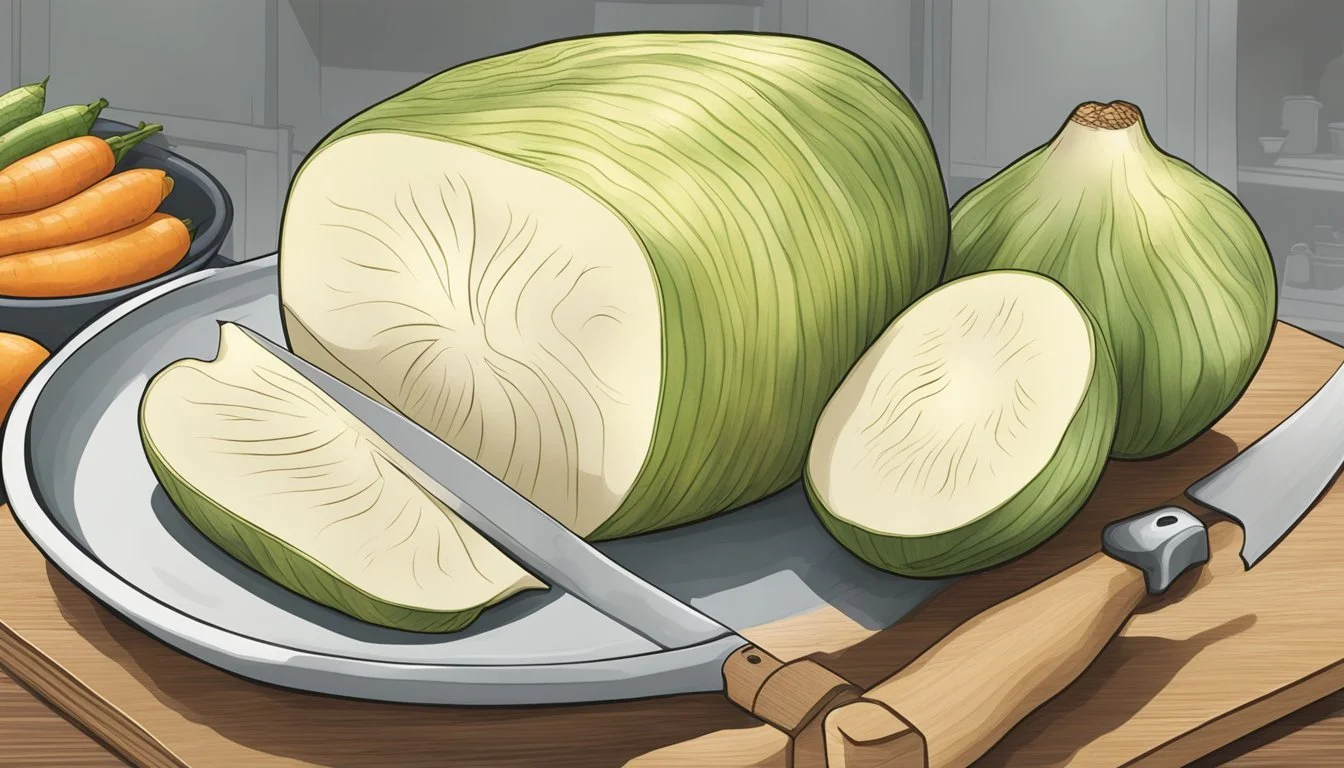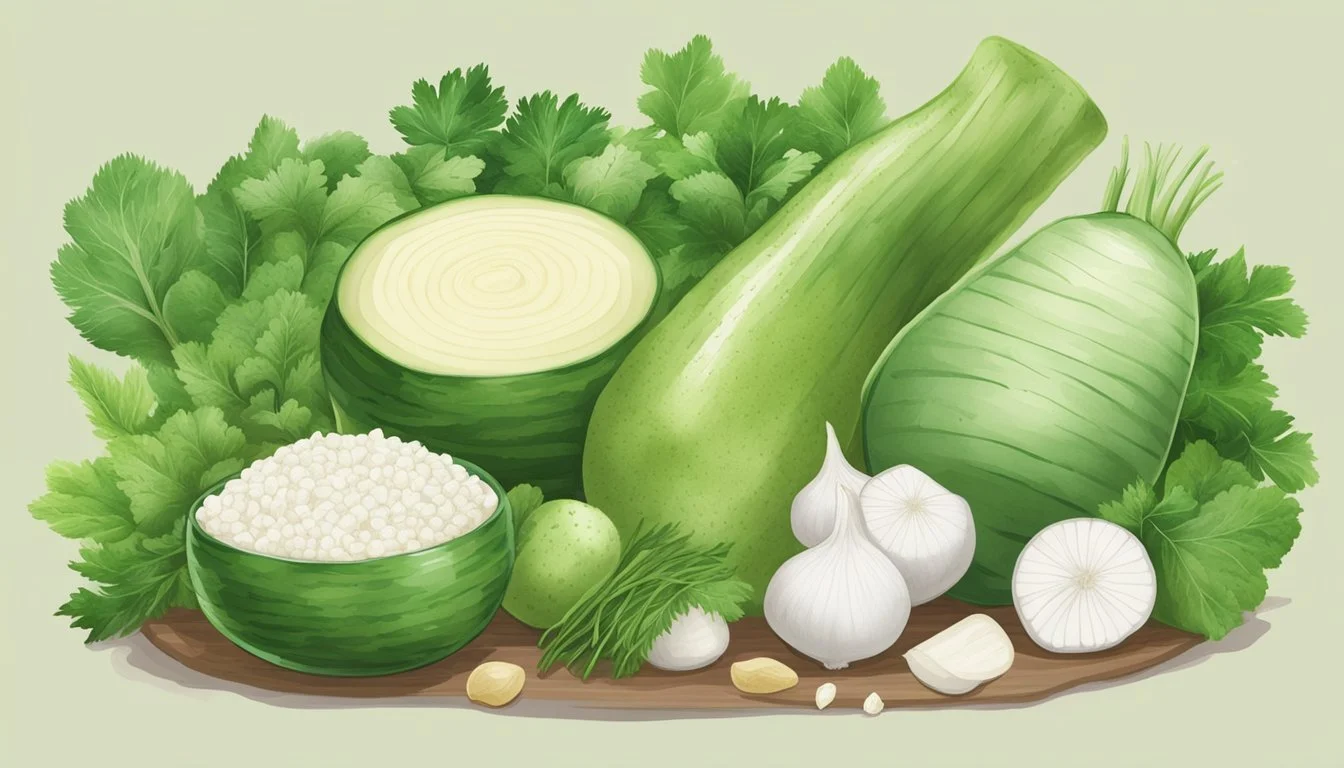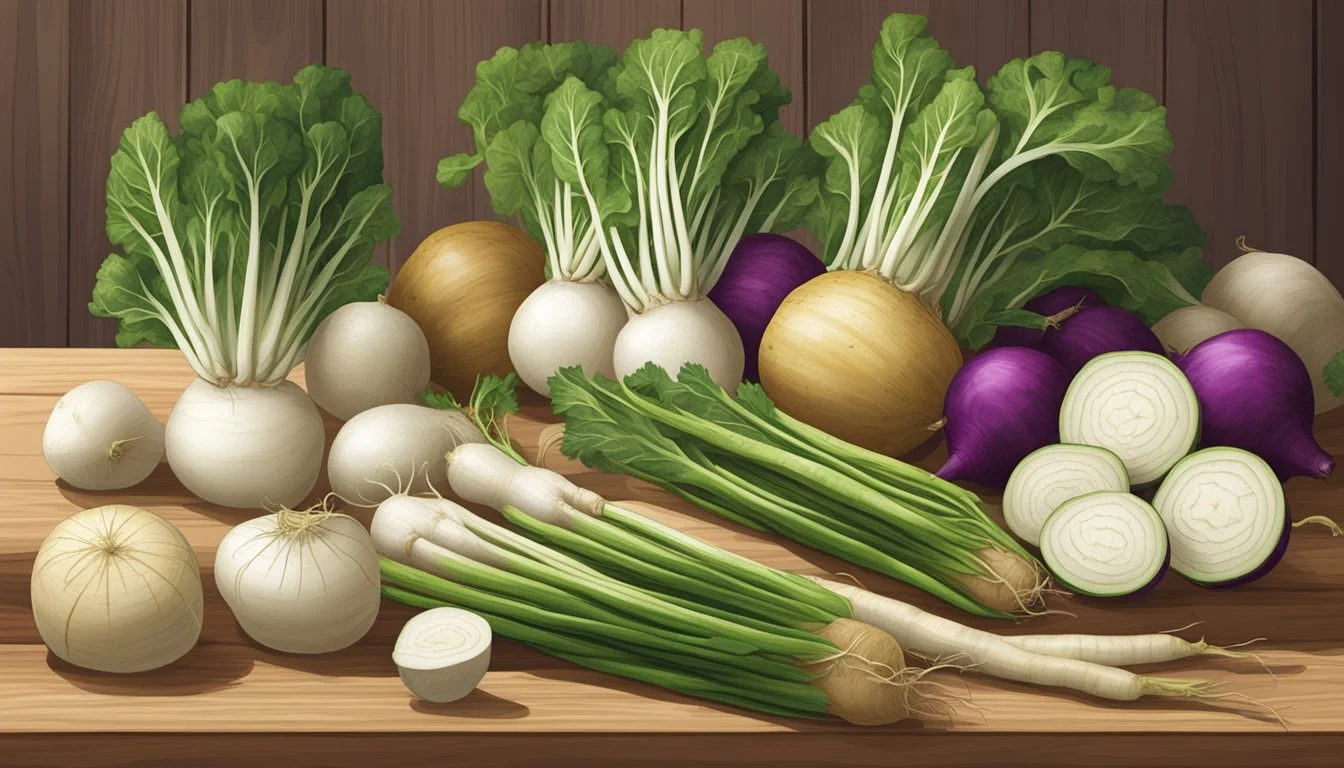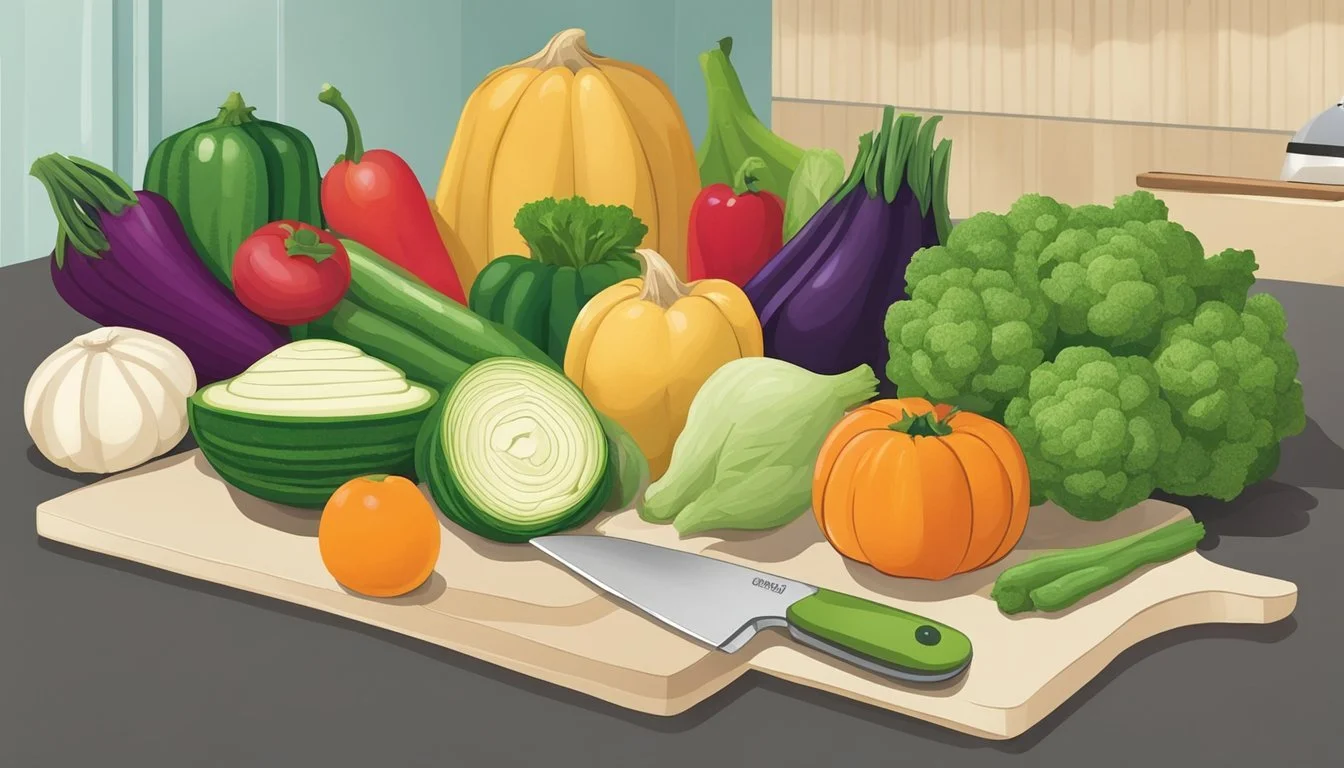Jicama Substitutes
Best Alternatives for Your Recipes
Incorporating jicama's unique, crunchy texture and mild sweetness into recipes has made it a favorite for many. However, finding quality jicama can sometimes be a challenge. Thankfully, there are several excellent substitutes for jicama that can seamlessly fit into a variety of dishes. From water chestnuts to Jerusalem artichokes, these alternatives maintain the desired crunch and subtle flavor, ensuring that your meals don't miss a beat.
For those needing a quick swap, water chestnuts are an ideal choice with their similar crunch and mildly sweet taste. Jerusalem artichokes also offer a comparable texture and can be enjoyed raw, boiled, or baked. Other suitable jicama substitutes include daikon radish and celery root, both of which bring a crisp bite to salads and stir-fries.
Choosing the right substitute often depends on the specific recipe and desired outcome. Whether replacing jicama in a salad, stir-fry, or raw snack, each of these alternatives provides a unique twist without compromising on texture or mild flavor. Experimenting with these substitutes can lead to new culinary discoveries and ensure that your dishes remain delicious and satisfying.
Understanding Jicama
Jicama is a root vegetable known for its crunchy texture and slightly sweet flavor. It offers numerous health benefits due to its nutritional content and is versatile in various culinary applications.
Nutritional Profile
Jicama is low in calories, making it an excellent choice for those watching their calorie intake. Each serving provides a substantial amount of fiber, which aids in digestion and contributes to a feeling of fullness. It is also rich in vitamin C, which supports the immune system and acts as an antioxidant, protecting cells from damage. Additionally, jicama contains potassium, which helps regulate blood pressure, and small amounts of vitamins A and C.
Culinary Uses
In the kitchen, jicama is highly versatile. It is commonly used in salads and slaws due to its fresh taste and crunchy texture. It can also be cut into sticks and used as a healthy alternative to fries. In Latin American cuisine, it is often found in Mexican dishes, adding a refreshing crunch to soups, stir-fries, and sandwiches. Outside of savory dishes, jicama can also be enjoyed raw as a refreshing snack.
Flavor and Texture
Jicama boasts a crunchy texture akin to a mix between a potato and an apple, making it a delightful addition to many dishes. Its flavor is mild and slightly sweet, which complements both sweet and savory recipes. When used in raw preparations, its fresh taste and crunch add an appealing contrast to ingredients like leafy greens and citrus fruits. In cooked dishes, jicama retains its crunchy texture better than many other vegetables, providing consistent texture throughout the meal.
Jicama Alternatives
When jicama is unavailable, a variety of vegetables and fruits can serve as suitable replacements due to their similar textures and flavors. These alternatives can be used in a range of dishes, from fresh salads to cooked meals.
Substitutes in Salads and Slaws
Water Chestnuts: Water chestnuts offer a similar crunchy texture and mildly sweet flavor, making them a great jicama substitute in salads and slaws. They retain their crunch even when cut and mixed with other ingredients.
Celery Root (Celeriac): Celery root has a mild taste and provides a crunchy bite, perfect for raw preparations like slaws. It's also rich in nutrients, including fiber, vitamin C, and potassium.
Green Apples: For a sweeter option, green apples can replace jicama in salads. They provide a crisp texture and a tart flavor that complements various salad ingredients.
Substitutes in Cooking
Jerusalem Artichokes (Sunchokes): Jerusalem artichokes have a mild, nutty flavor and can be consumed raw, boiled, or baked. When cooked, their texture becomes soft like jicama, making them ideal for cooked dishes.
Rutabaga: This root vegetable shares the sweetness and crunch of jicama. It performs well when roasted or boiled and blended into soups or stews.
Fennel: Fennel's subtle anise flavor and crunchy texture make it a unique substitute in cooked dishes, including sautéed and roasted preparations.
Root Vegetable Substitutes
Radishes: Both regular and daikon radishes offer a crisp texture and spicy kick, suitable for fresh or lightly cooked applications where jicama is usually used.
Turnips: Turnips can be a versatile substitute. They work well boiled, roasted, or mashed and can mimic the subtle sweetness of jicama in various recipes.
Kohlrabi: With its white flesh and similar crunchy texture, kohlrabi fits seamlessly into dishes requiring jicama. It can be eaten raw or cooked.
Parsnips: Parsnips bring a sweet, earthy flavor. While they are slightly softer than jicama when cooked, they still provide a pleasing texture in roasted or boiled dishes.
By choosing the right alternative, you can maintain the intended texture and flavor profile of your dish, making substitutions almost seamless.
Selecting the Best Jicama Substitute
Jicama is a versatile ingredient often used for its crispy texture and mild flavor. When substituting jicama, it's important to choose alternatives that match its qualities in either raw or cooked dishes.
Substitutes for Raw Dishes
For raw dishes like salads and slaws, several substitutes can replicate jicama's crunch and mild flavor.
Radishes offer a slightly spicy kick and crunch, making them a vibrant addition to salads.
Green apples and Asian pears provide a tart, sweet flavor and crisp texture, perfect for adding zest to any dish.
Cucumber is another mild-flavored option with a high water content, ensuring a similar refreshing bite.
Celery root (celeriac) also works well due to its crunchy texture and mild taste. These ingredients can often be substituted in a 1:1 ratio to keep recipes balanced.
Substitutes for Cooked Dishes
For cooked dishes, the goal is to find substitutes that mimic jicama's texture and ability to absorb flavors.
Cassava or yuca stands out due to its starchy consistency and nutty flavor, making it ideal for recipes requiring a thickener.
Turnip and rutabaga offer similar starchy, slightly sweet flavors that hold up well to cooking.
Water chestnuts maintain their crunchy texture even when cooked, offering a mildly sweet complement to various dishes.
Potatoes, including sweet potatoes, can also be used, although they impart a heartier texture and flavor. These substitutes can be implemented in a 1:1 ratio for easy recipe adaptation.
Nutritional Considerations
When selecting a substitute for jicama, it's essential to consider the nutritional profile of the alternatives. Factors such as fiber content and caloric value can significantly impact the suitability of a substitute for various dietary needs.
High Fiber Substitutes
Dietary fiber plays a crucial role in digestion and overall health. Some substitutes for jicama are particularly rich in fiber, making them excellent choices for those seeking to increase their fiber intake.
Celery root (Celeriac) stands out with its high fiber content. This root vegetable is not only crunchy but offers a mild flavor, similar to jicama. Its fiber content helps maintain digestive health while providing essential vitamins like vitamin C and potassium.
Jerusalem Artichoke is another high-fiber option. Known for its slightly nutty taste, it closely mimics jicama in texture and is versatile in various recipes. Its high inulin content, a type of fiber, promotes gut health and can contribute to a balanced diet.
Choosing substitutes with higher fiber helps achieve daily dietary fiber goals, supporting overall digestive wellness.
Low-Calorie Options
For those mindful of caloric intake, certain jicama substitutes offer the advantage of being low in calories. These options are excellent for weight management while still providing essential nutrients.
Green Apples are a great low-calorie alternative. They replace chopped jicama effectively in recipes and add a crisp texture. Moreover, green apples are rich in vitamins and antioxidants while keeping the calorie count low, making them ideal for salads and snacks.
Celery is another notable substitute. Known for its low-calorie content, celery provides a satisfying crunch without adding significant calories. It's also easy to find and affordable, ensuring a great option for low-calorie diets.
Using these low-calorie substitutes allows for maintaining a balanced diet without compromising on taste or nutritional value.
Where to Find Jicama and Its Substitutes
Jicama is widely available in many grocery stores and specialty markets. If fresh jicama is not available, several substitutes can be found or even grown at home.
Grocery Stores and Specialty Markets
Jicama, also known as the Mexican turnip, can be found in the produce section of most large grocery chains. Stores with a focus on Latin American or Central American cuisine are more likely to stock it.
Common Stores:
Walmart
Kroger
Whole Foods
Safeway
For substitutes, water chestnuts and celery root are commonly stocked in both general and Asian markets.
Other Substitutes in stores:
Green apples (for salads)
Jerusalem artichoke (for cooking)
Growing Your Own
For those with a green thumb, jicama can be grown at home, particularly in warm, tropical climates similar to its native South America and Central America. It requires full sun and a long growing season.
Growing Tips:
Plant in well-drained soil.
Ensure consistent moisture.
Harvest when the root is mature and firm.
Substitutes like celery root can also be cultivated with similar care but in slightly cooler climates. Both require space for the roots to develop properly.
Conclusion
When looking for jicama substitutes, several options can meet various culinary needs. Water chestnuts, for instance, offer a similar crunch and mild sweetness, making them perfect for salads and stir-fries.
For those seeking something a bit more exotic, Asian pears or crisp green apples can also provide a refreshing crunch. These fruits add a sweet and slightly tart flavor to dishes.
Root vegetables like radishes or turnips can be another alternative. Their texture is firm, and they add a peppery bite, which can be particularly interesting in savory recipes.
Personal chefs and caterers might prefer using these substitutes depending on the required dish. Each alternative presents unique nutritional benefits, such as vitamins and fiber, that can enhance various meals.
Food writers and those doing restaurant reviews might find these substitutes exciting to experiment with. Each substitute can bring a new twist to familiar recipes and contribute to culinary creativity.
The options listed provide flexibility and creativity in the kitchen. Whether cooking for a special occasion or simply trying something new, these jicama substitutes can be suitable alternatives.

